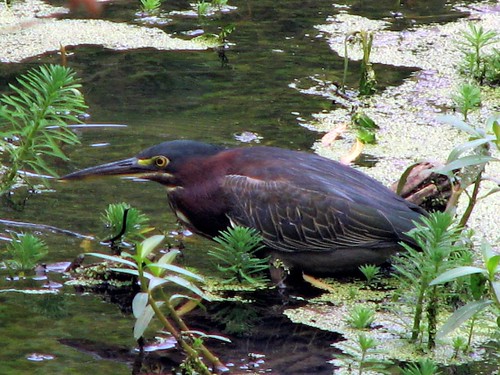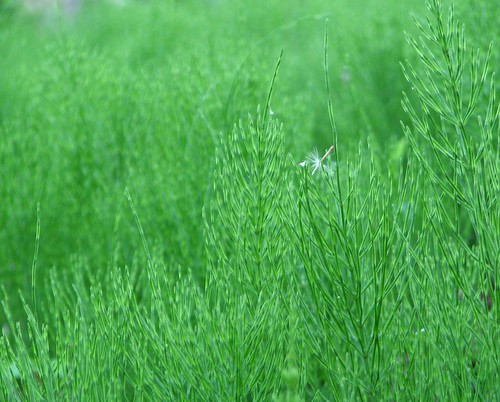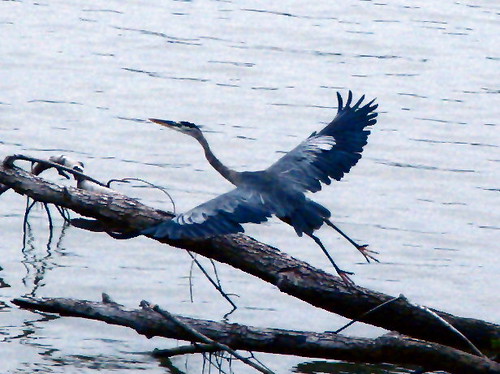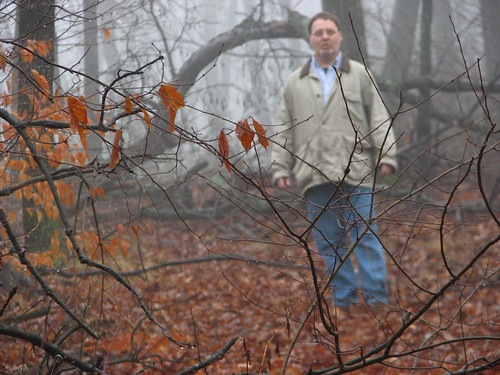Monday, April 30, 2012
The Bible and Economics
Today, I'm looking at the Book of Ezekiel, its first 16 chapters...
Ezekiel is a wild and crazy book, full of wild and crazy imagery which is mostly all about condemnation of Israel and/or Judah for their sins. Consider...
Ezekiel 1 begins with the otherwordly description of God visiting and communicating with Ezekiel (the one that some people say sounds like a UFO visitation).
Chapters 2 and 3 have God telling Ezekiel that he will be a prophet to Israel and Judah, that he is to prophesy against their great sin and rebelliousness. The specifics of Israel's sins are not mentioned, other than "rebelliousness..."
In Chapter 3 and 4, God describes to Ezekiel the bizarre sounding ways he will communicate God's displeasure to Israel and Judah (some of it involves human excrement, later "downgraded" to mere bullshit - literally.)
In Chapter 5, God starts to get a bit more specific (following some more imaginative ways of telling Israel they are under judgment - this time involving Ezekiel shaving off, weighing in a scale, and burning his hair). God describees Israel's sin as "rebelling against my laws more than the nations around her."
Descriptions of punishment ensue throughout Chapter 5 and into Chapter 6. There is a mention of Israel's idol worship as part of their sin.
In Chapter 7, as a result of Israel's sin and God's punishment, we read this about Israel...
“They will throw their silver into the streets,
and their gold will be treated as a thing unclean.
Their silver and gold
will not be able to deliver them
in the day of the Lord’s wrath.
It will not satisfy their hunger
or fill their stomachs,
for it has caused them to stumble into sin.
They took pride in their beautiful jewelry
and used it to make their detestable idols.
They made it into vile images;
therefore I will make it a thing unclean for them.
I will give their wealth as plunder to foreigners
and as loot to the wicked of the earth,
who will defile it."
There is also mention in Chapters 8 and 9 of violence and bloodshed as sins of Israel, but it isn't specified in what way. In these chapters and the following ones, there is more trippy imagery, more promises of judgment and a prophecy of exile to come.
Up until Chapter 16, we see "Israel's sin" spoken of mostly in general terms, mostly associated with idolatry, unfaithfulness, rebellion and, to a lesser degree, violence. In Chapter 16, though, the text gets more specific about Israel's sin. First, God speaks adoringly of God's love and care for Israel, described thusly...
I bathed you with water and washed the blood from you and put ointments on you. I clothed you with an embroidered dress and put sandals of fine leather on you. I dressed you in fine linen and covered you with costly garments. I adorned you with jewelry: I put bracelets on your arms and a necklace around your neck, and I put a ring on your nose, earrings on your ears and a beautiful crown on your head. So you were adorned with gold and silver; your clothes were of fine linen and costly fabric and embroidered cloth. Your food was honey, olive oil and the finest flour. You became very beautiful and rose to be a queen.
BUT, God then says (warning: text of a graphic nature follows)...
you trusted in your beauty and used your fame to become a prostitute. You lavished your favors on anyone who passed by and your beauty became his. You took some of your garments to make gaudy high places, where you carried on your prostitution. You went to him, and he possessed your beauty. You also took the fine jewelry I gave you, the jewelry made of my gold and silver, and you made for yourself male idols and engaged in prostitution with them. And you took your embroidered clothes to put on them, and you offered my oil and incense before them. Also the food I provided for you—the flour, olive oil and honey I gave you to eat—you offered as fragrant incense before them. That is what happened, declares the Sovereign Lord.
And you took your sons and daughters whom you bore to me and sacrificed them as food to the idols. Was your prostitution not enough? You slaughtered my children and sacrificed them to the idols.
In all your detestable practices and your prostitution you did not remember the days of your youth, when you were naked and bare, kicking about in your blood.
Woe! Woe to you, declares the Sovereign Lord. In addition to all your other wickedness, you built a mound for yourself and made a lofty shrine in every public square. At every street corner you built your lofty shrines and degraded your beauty, spreading your legs with increasing promiscuity to anyone who passed by. You engaged in prostitution with the Egyptians, your neighbors with large genitals, and aroused my anger with your increasing promiscuity. So I stretched out my hand against you and reduced your territory; I gave you over to the greed of your enemies, the daughters of the Philistines, who were shocked by your lewd conduct. You engaged in prostitution with the Assyrians too, because you were insatiable; and even after that, you still were not satisfied. Then you increased your promiscuity to include Babylonia, a land of merchants, but even with this you were not satisfied...
You adulterous wife! You prefer strangers to your own husband! All prostitutes receive gifts, but you give gifts to all your lovers, bribing them to come to you from everywhere for your illicit favors. So in your prostitution you are the opposite of others; no one runs after you for your favors. You are the very opposite, for you give payment and none is given to you.
The text continues in this vein and then compares Israel to Sodom and other sinful nations...
Now this was the sin of your sister Sodom: She and her daughters were arrogant, overfed and unconcerned; they did not help the poor and needy. They were haughty and did detestable things before me. Therefore I did away with them as you have seen.
The sins of Israel is likened to the sins of Sodom. They were idolatrous, but that idolatry seems to have been tied to their lust for silver, gold, jewelry, and baser lusts of the flesh. That idolatry showed itself in pagan sex rituals, in human sacrifice (of children, apparently) and in a failure to be concerned about the poor and needy and in reveling in their wealth and appetites.
I'll stop there for today...
Friday, April 27, 2012
John James Audubon
It's John James Audubon's birthday this week (born April 26, 1785). Audubon (for whom the National Audubon Society is named) was born in France and migrated to America as a young man. He spent a good bit of time in Kentucky, where he honed his skills as a naturalist and artist. He is remembered mainly for his contributions to ornithology - and rightly so - but I am amazed at his story, of being a self-taught naturalist and painter.
He loved birds and nature and just went out and observed them, drew them and painted them - sometimes burning his finished paintings so as to force himself to re-paint and do an even better job - and became an expert just by doing what he loved. It's a great story. Here are some of his quotes...
Almost every day, instead of going to school, I made for the fields, where I spent my day...
I can scarcely manage to scribble a tolerable English letter. I know that I am not a scholar, but meantime I am aware that no man living knows better than I do the habits of our birds...
But hopes are Shy Birds flying at a great distance seldom reached by the best of Guns...
Up the river the view was indeed enchanting.; the undulating meadows sloped gently to the water's edge on either side, and the larks that sprang up before me, welcoming the sun's rise, animated my thoughts so much that I felt tears trickling down my cheeks as I gave thanks to the God who gave life to all these in a day...
Look at that mallard as he floats on the lake; see his elevated head glittering with emerald green, his amber eyes glancing in the light! Even at this distance, he has marked you, and suspects that you bear no goodwill towards him, for he sees that you have a gun, and he has many a time been frightened by its report, or that of some other. The wary bird draws his feet under his body, springs upon then, opens his wings, and with loud quacks bids you farewell...
Happy Audubon's Birthday!
Friday, April 20, 2012
Friday, April 6, 2012
A Resurrection Reflection
…Then, not for the first or the last time,
I take the deep breath
of happiness, and I think
how unlikely it is
that death is a hole in the ground,
how improbable
that ascension is not possible,
though everything seems so inert, so nailed
back into itself–
the muskrat and his lumpy lodge,
the turtle,
the fallen gate...
And especially it is wonderful
that the summers are long
and the ponds so dark and so many,
and therefore it isn't a miracle
but the common thing,
this decision,
this trailing of the long legs in the water,
this opening up of the heavy body
into a new life: see how the sudden
gray-blue sheets of her wings
strive toward the wind; see how the clasp of nothing
takes her in.
~from Heron Rises From the Dark Summer Pond, by Mary Oliver
Monday, April 2, 2012
Thoreau, the Art of Walking
I wish to speak a word for Nature, for absolute freedom and wildness, as contrasted with a freedom and culture merely civil - to regard man an inhabitant, or a part and parcel of Nature, rather than a member of society...
I have met with but one or two persons in the course of my life who understood the art of Walking, that is, of taking walks - who had a genius, so to speak, for sauntering, which word is beautifully derived "from idle people who roved about the country, in the Middle Ages, and asked charity, under the pretense of going a la Sainte Terre," to the Holy Land, till children exclaimed, "There goes a Sainte-Terrer," a Saunterer, a Holy-Lander...
Some, however, would derive the word from sans terre, without land or a home, which, therefore, in the good sense will mean having no particular home, but equally at home everywhere. For this is the secret of successful sauntering...




